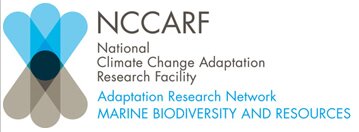
Community-based participatory research (CBPR) is research that is conducted as an equal partnership between traditionally trained “experts” and members of a community. In CBPR projects, the community participates fully in all aspects of the research process. CBPR projects start with the community.
Community is often self-defined, but general categories of community include geographic community, community of individuals with a common problem or issue, or a community of individuals with a common interest or goal. CBPR encourages collaboration of “formally trained research” partners from any area of expertise, provided that the researcher provide expertise that is seen as useful to the investigation by the community, and be fully committed to a partnership of equals and producing outcomes usable to the community.
Equitable partnerships require sharing power, resources, credit, results, and knowledge, as well as, a reciprocal appreciation of each partner’s knowledge and skills at each stage of the project, including problem definition/issue selection, research design, conducting research, interpreting the results, and determining how the results should be used for action. CBPR differs from traditional research in many ways.
One of the principal ways in which it is different is that instead of creating knowledge for the advancement of a field or for knowledge’s sake, CBPR is an iterative process, incorporating research, reflection, and action in a cyclical process.
History
The roots of CBPR trace back to three fields, the fields of popular education and Paulo Freire, international development and Orlando Fals Borda, and shop floor democracy and Kurt Lewin.[1]
See also
Centre for Community Based Research (www.communitybasedresearch.ca)
References
1. ^ Wallerstein, N. and B. Duran (2003). The Conceptual, Historical and Practical Roots of Community Based Participatory Research and Related Participatory Traditions. Community Based Participatory Research for Health. M. Minkler and N. Wallerstein. San Francisco, Jossey Bass: 27-52
* Cofundos aims at establishing a prediction market for funding of participatory research.
* Community-Campus Partnerships for Health
* Progress in Community Health Partnerships: Research, Education, and Action - The mission of the Journal is to facilitate dissemination of programs that use community partnerships to improve public health, to promote progress in the methods of research and education involving community health partnerships, and to stimulate action that will improve the health of people in communities. Communities, as defined by the Journal, may be based on geography, shared interests, or social networks. The Journal is dedicated to supporting the work of community health partnerships that involve ongoing collaboration between community representatives and academic or governmental partners. This area of research and evaluation may be referred to as community-based participatory research (CBPR). The W. K. Kellogg Foundation defines CBPR as a collaborative approach to research that equitably involves all partners in the research process and recognizes the unique strengths that each brings. CBPR begins with a research topic of importance to the community and has the aim of combining knowledge with action and achieving social change to improve health outcomes and eliminate health disparities.
* Journal of Health Care for the Poor and Underserved The Journal of Health Care for the Poor and Underserved (JHCPU) is an academic journal founded in 1990 by David Satcher, MD, PhD then President of Meharry Medical College (later, U.S. Surgeon General). JHCPU is published by Johns Hopkins University Press for Meharry, and is affiliated with the Association of Clinicians for the Underserved. It is the premier journal covering the health and health care of medically underserved populations in North and Central America and the Caribbean.
* Participatory Research, Community Development and Drug Misuse
* Community-Based Participatory Research (CBPR): A Partnership Approach for Public Health is a free training resource available from the Michigan Public Health Training Center and the Detroit Community-Academic Urban Research Center. This training resource is intended as an introduction to CBPR for people who are in the early stages of using or considering using CBPR. It is designed for academic researchers from multiple fields, including public health, education, nursing, medicine, social work, urban planning, and for health and human service practitioners, and members of community-based organizations.
Acknowledgements
The community based participatory research (CBPR) principles developed on this webpage are based on the Citizen Science (or URP) Toolbox (URL: https://app.secure.griffith.edu.au/03/toolbox/). The Citizen Science Toolbox was a Coastal Cooperative Research Centre project and was an initiative of Professor John Fien. It was developed by Dr Tim Smith with the assistance of Neil Lazarow, Judith Pembleton, Kerry Rosenthal, Don Alcock, Dr Dana Thomsen, Kelly Hudson, Jim Gleeson, Dr Peter Oliver, Dr Margaret Gooch, Clayton White, Bronwyn Powell, Dr James Whelan, Professor Roy Rickson, Rowan Eisner, Christina Dwyer, Helena Malawkin and Dr Jan Tilden.
Other references used in the development of the principles and their descriptions include::
Balcazar, FE, Taylor, RR, Kielhofner, GW, Tamley, K, Benziger, T, Carlin, N & Johnson, S. 2004, ‘Participatory Action Research: General Principles and a Study with a Chronic Health Condition,’ in Participatory Community Research: Theories and Methods in Action, L. Jason, CB. Keys, Y. Suarez-Balcazar, RR. Taylor & MI. Davis (eds), American Psychological Association, Washington DC
Community-Campus Partnerships for Health (CCPH) 2010, Community Based Participatory Research, URL: http://depts.washington.edu/ccph/commbas.html#Principles
O’Fallon, LR. & Dearry, A. 2002, ‘Community-based Participatory Research as a Tool to Advance Environmental Health Sciences, Environmental Health Perspectives, Vol.110, Supplement 2, pp.155-159
Orford, J. 2008, Community Psychology: Challenges, Controversies and Emerging Consensus, John Wiley & Sons, London
University of Washington School of Public Health 2010, Community Based Research Principles, URL: http://sph.washington.edu/research/community.asp < Back
|
